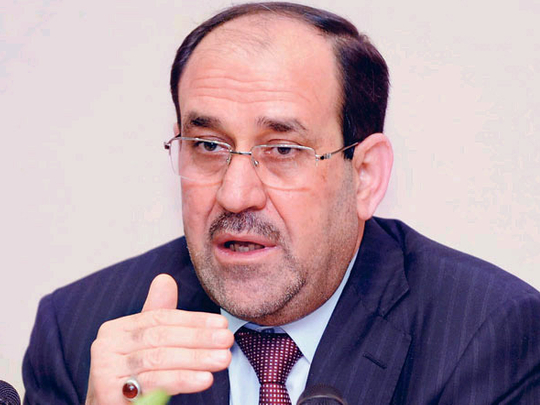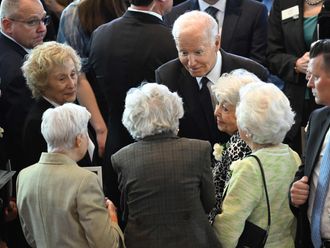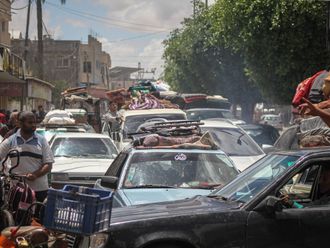
Baghdad: Iraq's premier has convened parliament for Sunday to debate what his government branded an "illegal" decision to reinstate candidates with alleged links to ousted dictator Saddam Hussain in next month's election, state television said.
The television said parliament speaker Eyad Samarrai had at the request of Prime Minister Nouri Al Maliki called MPs to an extraordinary session "to study the decision of the seven judges."
The electoral commission announced on Wednesday that the judges had ruled that around 500 candidates barred from Iraq's March 7 general election could stand after all.
Government spokesman Ali Al Dabbagh in a statement yesterday labelled the ruling "illegal" and "unconstitutional."
A decision on Wednesday to reverse a ban on candidates with alleged Baathist ties was largely seen as a damage control in an effort to ease tensions before Iraq's upcoming election.
The ban threatened to damage the credibility of the elections, and was red-flagged by Washington and the United Nations as increasing the possibility of greater instability.
"As a result of this [banning] manoeuvre, Sunnis will be marginalised in national elections yet again," says Saleh Al Mutlaq, the leader of the second largest Sunni party in Iraq, who was among hundreds of politicians banned from elections in a controversial de-Baathification process.
Sectarian and civil war surged across Iraq, especially after the bombing of a Shiite shrine in Samarra in February 2006 contributed to record death tolls of 3,000 per month and ethnic cleansing of many neighbourhoods in Baghdad.
Minority Sunnis ruled Iraq under Saddam Hussain and his Baath Party for three decades, but the 2003 American invasion paved the way for domination by the 60 per cent majority Shiites.
"Many underestimate the importance — the urgency of this crisis," says political analyst Haider Al Mousawi. "Saleh Al Mutlaq and [banned fellow Sunni politician] Thafir Al Ani represent 35 years of oppression to the Shiites — who are a majority. They were not very smart to make statements like ‘Baathists will have 40 seats in the next parliament,' and similar ones that scare people even more."
Sunnis largely boycotted Iraq's first national election in 2005, but later realised that the boycott removed them from decision-making. Despite the latest de-Baathification moves, in which Iraq's Accountability and Justice Commission had rejected 572 candidates, other politicians say the latest Sunni threat was a political bluff. "Now there is awareness and conviction that boycotting will not serve any purpose," says Dia Al Shakerchi, an independent Shiite parliamentarian.
If the ruling stands, those blacklisted will still be subject to investigation after the vote.












